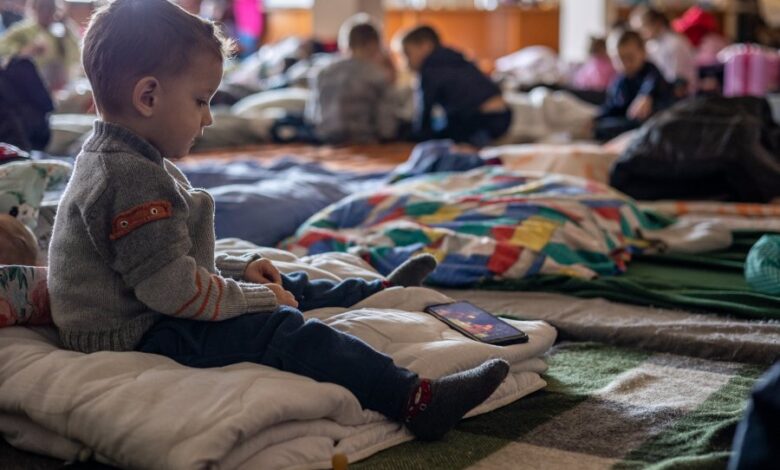3.4 million Ukrainian children have limited access to water and sanitation, 1.5 million face mental problems: UNICEF

The war in Ukraine brought unprecedented challenges for children who found themselves at the epicenter of the humanitarian crisis. For several years now, they have been living in constant fear of shelling, losing their homes, friends, access to education and a normal childhood. Many of them spent months in bomb shelters, their world reduced to the sounds of sirens and constant alarms. According to international organizations, the impact of war on the psychological and physical health of children is catastrophic.
Water supply and sanitation crisis
One of the most pressing issues remains access to basic living conditions — clean water and sanitation. Head of the United Nations Children’s Fund (UNICEF) Office in Ukraine, Munir Mammadzadeh reported, that more than three million children face this problem every day. The situation is especially difficult in the front-line regions, where the infrastructure is destroyed, and the danger of shelling does not allow the restoration of water supply or the construction of new sanitary facilities.
Lack of access to clean water puts children in a dangerous position, because it threatens the spread of infectious diseases. In many communities, water has become a luxury, and families are forced to spend a significant amount of time and resources searching for it. Lack of basic sanitation adds to the risks, creating a breeding ground for diseases such as diarrhea or skin infections.
UNICEF is trying to solve this problem by bringing clean water to the affected regions, installing tanks and filtration systems, and providing public health education. However, the scale of the crisis is so great that these efforts are not enough.
Psychological injuries of children
War not only destroys the physical infrastructure, but also deeply affects the psyche of children. According to UNICEF, more than one and a half million children suffer from post-traumatic stress disorder, depression or anxiety. Prolonged exposure to fear and uncertainty undermines their ability to learn, communicate and develop.
“This is one of the areas where a lot of work is being done, because 1.5 million children in Ukraine today face such problems as depression, insomnia, anxiety. We also know that during these 1,000 days, children spent 2,800 to 4,800 in shelters hours while regular alarms sound. Our estimates show the extent of the war’s impact on children: they spent an average of four to six and a half months in shelters.” Mamedzade emphasized.
UNICEF creates psychological support centers for children and their families, organizes training for specialists who work with victims, and provides support to educational institutions. But without adequate funding and coordinated cooperation with state structures, the problem will remain unsolved.
A call to action
UNICEF calls on the Ukrainian authorities to become more actively involved in solving these problems. In particular, it is necessary to improve the humanitarian policy aimed at protecting children, ensure the prompt restoration of water supply and infrastructure, and also support psychological rehabilitation programs.
The international community must also play a key role in this crisis. The joint efforts of government bodies, humanitarian organizations and civil society are critically important to mitigate the consequences of the war for the most vulnerable – Ukrainian children.
Children are the future of Ukraine, and their safety, health and development should become a priority for everyone who can influence the situation. Addressing these issues now is an investment in a sustainable and prosperous tomorrow.





